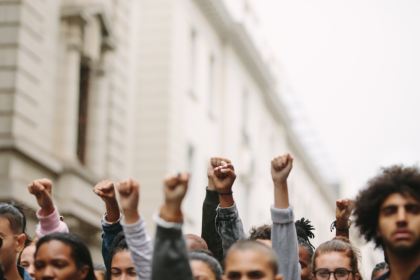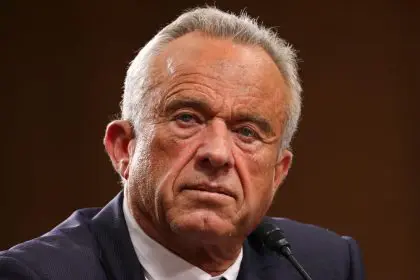The death of a Brazilian social media personality following cosmetic procedures in Turkey has renewed scrutiny over the rapidly expanding medical tourism industry and the risks patients face when seeking surgical treatments abroad.
Ana Bárbara Buhr Buldrini, 31, died hours after undergoing multiple cosmetic procedures at a private hospital in Istanbul on June 15. The influencer, who had nearly 800,000 followers across social media platforms, had traveled from Mozambique with her husband to receive liposuction, breast augmentation and rhinoplasty procedures.
Growing concerns over international cosmetic surgery
The incident has highlighted mounting concerns about the safety protocols and oversight mechanisms governing cosmetic surgery tourism, particularly as social media continues to drive demand for aesthetic procedures among younger demographics. Medical tourism for cosmetic surgery has experienced explosive growth in recent years, with Turkey emerging as one of the world’s leading destinations for such procedures.
The husband used social media to express his grief and demand accountability for the circumstances surrounding his wife’s death, calling for truth and justice in the wake of the tragedy. Industry data suggests that millions of patients annually cross international borders seeking cosmetic treatments, drawn by lower costs, shorter waiting times and aggressive marketing campaigns targeting social media users. However, medical professionals increasingly warn that inadequate preparation, rushed scheduling and insufficient post-operative care create dangerous conditions for patients.
The circumstances surrounding Buldrini’s case appear to exemplify these systemic issues. Her husband’s social media posts revealed that the surgery was rescheduled from June 18 to June 15 due to scheduling conflicts at the facility. He voiced concerns that his wife was not adequately prepared for the accelerated timeline, raising questions about the clinic’s adherence to standard pre-operative protocols.
Medical facility acknowledges complications
Tusa Hospital, where the procedures were performed, confirmed that an unexpected complication occurred during the recovery period. Medical staff reportedly attempted resuscitation efforts for 90 minutes before declaring the patient deceased due to cardiorespiratory arrest.
The hospital’s acknowledgment of complications has intensified discussions about transparency and accountability within the medical tourism sector. Critics argue that facilities catering to international patients may prioritize volume and profit margins over comprehensive patient safety measures.
Social media’s role in promoting medical tourism
Buldrini’s case also illustrates the complex relationship between social media influence and medical tourism marketing. The influencer had reportedly entered into an agreement with the hospital to promote their services in exchange for the procedures, a practice that has become increasingly common as medical facilities seek to leverage social media personalities’ reach and credibility.
This arrangement raises ethical questions about the responsibilities of both medical providers and social media influencers when promoting surgical procedures. Medical ethicists argue that such partnerships may create conflicts of interest that compromise patient care and informed consent processes.
The incident has sparked broader conversations about how social media platforms normalize cosmetic surgery and whether influencers adequately communicate the inherent risks associated with these procedures to their followers.
Regulatory gaps in international medical care
The tragedy underscores significant regulatory disparities between countries regarding cosmetic surgery oversight. While some nations maintain strict licensing requirements, mandatory waiting periods and comprehensive patient safety protocols, others operate with more permissive regulatory frameworks that may not adequately protect international patients.
Medical tourism patients often lack recourse when complications arise, as legal protections and insurance coverage may not extend to procedures performed abroad. This regulatory patchwork creates vulnerable situations for patients who may not fully understand their rights or the quality standards governing their care.
Professional medical organizations have called for enhanced international cooperation to establish minimum safety standards and improve patient protection mechanisms across borders. However, implementing such measures remains challenging due to varying national healthcare regulations and commercial interests.
Industry response and safety initiatives
The cosmetic surgery industry has begun implementing various safety initiatives in response to growing public concern and regulatory pressure. Some medical tourism facilitators now require comprehensive pre-operative evaluations, extended recovery periods and detailed informed consent processes.
Professional associations are also developing certification programs and safety protocols specifically designed for international patients. These initiatives aim to standardize care quality while ensuring patients receive adequate preparation and follow-up support regardless of their treatment location.
However, critics argue that voluntary industry standards may be insufficient to address systemic safety issues, calling for more robust regulatory oversight and enforcement mechanisms.
Impact on patient decision-making
Medical professionals emphasize that patients considering cosmetic surgery abroad must conduct thorough research into facility credentials, surgeon qualifications and safety records. They recommend consulting with local healthcare providers before traveling and ensuring comprehensive insurance coverage for potential complications.
The incident serves as a sobering reminder that cosmetic procedures, regardless of location, carry inherent risks that require careful consideration and proper medical oversight. Patients must weigh cost savings against potential safety compromises when considering international treatment options.
Healthcare advocates stress the importance of prioritizing patient safety over financial considerations and social media promotion when making decisions about elective surgical procedures.
Moving forward: calls for reform
Buldrini’s death has galvanized calls for comprehensive reform within the medical tourism industry, including enhanced regulatory oversight, improved safety standards and greater transparency in marketing practices.
Advocates argue that meaningful change requires coordinated efforts between government regulators, medical professionals, social media platforms and tourism facilitators to create safer environments for international patients seeking cosmetic procedures.
The tragedy serves as a catalyst for broader discussions about body image, social media influence and the commercialization of cosmetic surgery, highlighting the need for more responsible approaches to promoting and providing aesthetic medical treatments in an increasingly connected global marketplace.

















